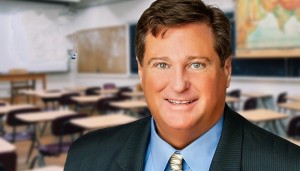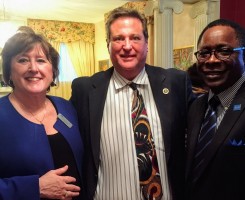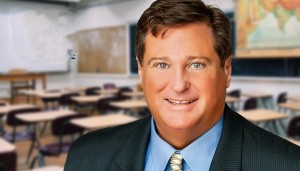As an educator, I often reflect on the fundamental nature of effective communication. This concept mirrors our kindergarten lessons: play fair, avoid physical conflict, return items to their rightful place, apologize when you hurt someone, and maintain good personal hygiene.
Our public discussions have overshadowed the seemingly simple principles found in Robert Fulghum's book, which taught us to navigate the world. It's time to return to these basic principles and counter the decline in reasoned political conversations and the influence of partisanship.
How did we veer so far off course in our public discourse? Many individuals have perceived a decline in reasoned political conversations in the United States by avoiding them to sidestep personal conflict. A Pew Research Center survey reveals that while most individuals acknowledge the threats of aggressive rhetoric, partisanship influences expectations for behavior, resulting in double standards.
Hungarian linguist Bela Banathy noted that dialogue is not the conventional method of communication, as many need to familiarize themselves with how to engage in it. People recognize the need for social media companies to remove offensive content but often cannot even define what constitutes such content.
Currently, there needs to be more constructive political dialogue among policymakers. However, this is not a situation we should accept as the norm. This lack of engagement stifles effective communication and obstructs the pursuit of consensus or compromise for the common good. But it's not too late. It's time to reinvigorate our political discussions with a renewed focus on constructive dialogue. This shift will motivate and keep us engaged in public discourse, inspiring hope for a more constructive future.
Instead of perpetuating the trend of adversarial debate in political circles, we should strive for a more inclusive dialogue. While the current discourse has its merits, it often prioritizes winning over finding solutions that benefit everyone. A more inclusive dialogue, on the other hand, can lead to solutions that are truly beneficial for all.
Carol Watson and others emphasize the importance of collaboration in dialogue. This approach values the unique insights that various individuals hold. The objective is to weave together these diverse perspectives into a cohesive understanding, making each contribution significant. This inclusivity is crucial in fostering a sense of respect and belonging in our political discourse.
This collaborative mindset fosters something more significant than anyone could envision alone. It offers a hopeful avenue for growth and learning in political discourse, instilling optimism about the potential for positive change.
Genuine dialogue cannot simply involve a scenario where one authoritative figure dictates decisions to a subordinate without regard for their input. Such interactions are better categorized as lectures, mainly when they come across as reprimands.
Our goal should be to find common ground. However, many politicians prioritize outcomes reflecting their viewpoints over engaging in constructive dialogue.
Consequently, most politicians on both sides of the political aisle contribute little new information to discussions; their positions are typically well-established, leading to predictable outcomes. Constructive dialogue requires openness to critique and a willingness to listen, which can lead to better results.
Individuals should feel free to express diverse perspectives within an atmosphere of trust and respect. Healthy political discourse is essential for effective governance, characterized by integrity and balancing varied interests to reach compromises.
All viewpoints should be valued, and decisions must be based on evidence of the public interest. Ultimately, we need to foster better conversations and embrace the courage to communicate with one another.
As Robert Fulghum aptly points out, “If all governments had as a basic policy always to put things back where they found them and to clean up their own mess,” the world would be better. He was right.
##
JC Bowman is the executive director of Professional Educators of Tennessee.











